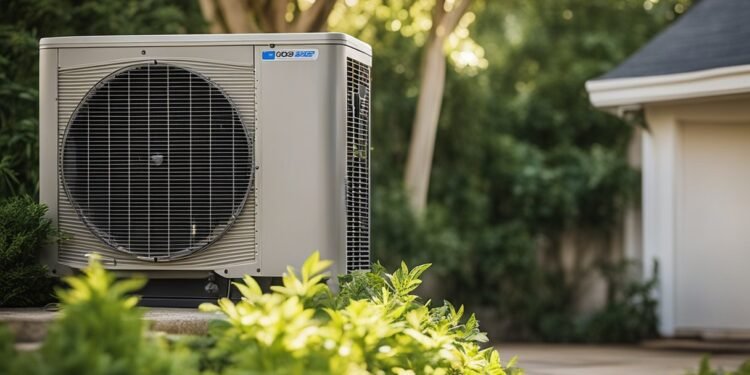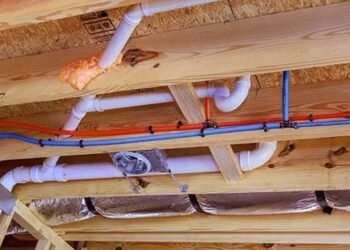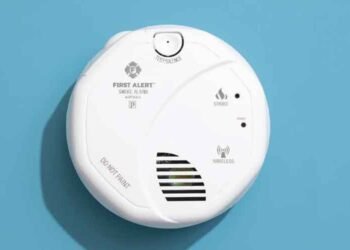Air conditioning is a vital feature for comfort in homes and vehicles, especially during hot weather. A central component of any air conditioning system is the AC compressor, which is responsible for compressing the refrigerant and circulating it through the system. An AC compressor typically lasts between 10 to 15 years before requiring replacement or significant repair.
Fundamentals of AC Compressors
The AC compressor is integral to the function of an air conditioning system, affecting both performance and longevity. It is a critical component in the refrigeration cycle, enabling the cooling process by circulating refrigerant.
Components and Functionality
An air conditioning compressor consists of various parts including the electric motor, pistons, valves, and connecting rods. These components work together to compress the refrigerant, transitioning it from a low-pressure gas to a high-pressure gas, which is essential for efficient cooling.
Types of AC Compressors
AC compressors are categorized into several types, each suited for specific applications:
- Reciprocating Compressors: Use pistons and are commonly found in residential units.
- Screw Compressors: Utilize two helical rotors and are used in large commercial systems.
- Centrifugal Compressors: Employ a radial design and are typically found in industrial applications.
- Rotary Compressors: Have a cylindrical rotor and are known for their quiet operation.
Expected Lifespan
The expected lifespan of an AC compressor generally ranges between 10 to 15 years. This can vary based on factors such as maintenance frequency, usage patterns, and the quality of installation. Regular servicing, for example through providers such as downtown-air.com, can detect potential issues early, potentially extending a compressor’s operational life.
Factors Affecting AC Compressor Longevity
The lifespan of an AC compressor can be influenced by several critical factors, including how the unit is used, maintained, and the environment in which it operates.
Usage Patterns
Frequency of Use: An AC compressor’s durability is closely linked to how often it’s used. Compressors in warmer climates or in commercial settings may run more frequently, leading to a potentially shortened lifespan.
Cycling On and Off: Units that turn on and off repeatedly can experience more wear. A properly sized AC system for the space is essential to minimize this stress.
Maintenance and Servicing
Regular Maintenance: Professional maintenance, such as offered by firms specializing in ac repair in Winter Garden, can significantly extend a compressor’s operational life. Schedule biannual service checks to ensure optimal performance.
Early Repairs: Promptly addressing issues like refrigerant leaks or electrical problems can prevent stress on the compressor, thus prolonging its life, especially when handled by an air conditioning service piara waters.
Environmental Influences
Climatic Conditions: Compressors in coastal areas may corrode faster due to salt in the air, while those in areas with extreme temperatures face additional strain.
Installation Location: Where the compressor unit is installed can affect its longevity. It should be placed in a shaded, well-ventilated area to avoid overheating and exposure to the elements.
Identifying and Diagnosing AC Compressor Issues
When an AC compressor begins to fail, it typically exhibits a few common signs that may require a professional’s attention to accurately diagnose and address the issue.
Common Signs of Wear and Failure
- Strange Noises: When compressors are on the edge of failure, they often make unusual noises. Rattling, clicking, or squealing sounds can indicate internal wear or damage.
- Decreased Cooling: If the air conditioning system is no longer producing the same level of cool air, this may point towards a failing compressor.
- Electrical Issues: Compressors in distress may also cause circuit breakers to trip or fuses to blow as they struggle to start and operate.
- Visible Wear: Signs such as oil leaks or excessive vibration can be observed during a visual inspection.
Extending the Life of Your AC Compressor
To maintain an air conditioning compressor’s efficiency and longevity, homeowners should focus on regular maintenance and optimization practices. These strategies help prevent common issues that can lead to premature failures.
Regular Maintenance Tips
- Inspect and Replace Air Filters Regularly: Dirty filters can cause excessive strain on the AC compressor. It is advisable to replace or clean air filters every 30-60 days.
- Ensure Adequate Refrigerant Levels: Too much or too little refrigerant can cause the compressor to work harder. It’s important to have a professional from AC repair in Winter Garden check and adjust refrigerant levels.
- Schedule Professional Maintenance: Yearly inspections by a certified technician can help catch potential problems early on, avoiding major repairs.
Best Practices for Optimization
- Avoid Overworking the System: During extremely hot days, setting the thermostat to a reasonable temperature can reduce the workload on the AC compressor.
- Keep the Condensing Unit Clean: Ensuring the outdoor unit is free from debris can improve airflow and efficiency.
- Insulate and Seal Cooling Areas: Proper insulation helps maintain desired temperatures, thus reducing the demand on the AC compressor.












